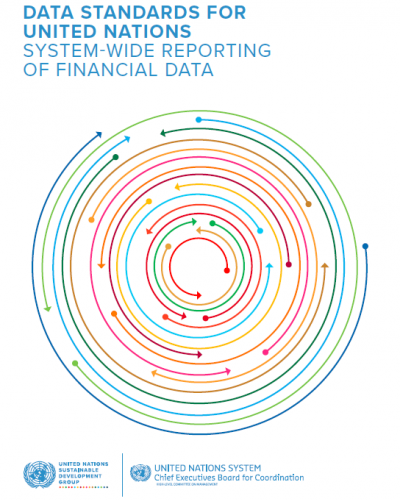UN System Financial Data Standards
The UN financial data standards prescribe how UN System entities must align their financial data for system-wide reporting exercises.
The standards were prepared by an inter-agency working group, the ad-hoc team on the UN's future data cube. Under joint cooperation, they were reviewed and endorsed by the United Nations Sustainable Development Group (UNSDG) and the High-level Committee on Management (HLCM) of the UN Chief Executive Board for Coordination.
The latest edition of the data standards is dated January 2019.
The final standards cover six aspects:
- UN Entity: To determine which UN entities will be included in the UN system-wide financial data reporting.
- UN System Function: To assure consistency of reporting expenses against the UN's main functional areas, this standard defines these functions. The four definitions include Development Assistance, Humanitarian Assistance, Peace Operations, and Global Agenda and Specialized Assistance.
- Geographic Location: This standard defines under which geographical locations – global, regions, countries, and areas – financial information must be reported and likewise gives guidance for allocating expenses.
- UN Grant Financing Instruments: As part of the UN financial data standards, it provides definitions for the grant instruments and the modalities in which funds are received. Revenues are generally divided into Assessed contributions, Voluntary core contributions, Voluntary non-core contributions, and Revenue from other activities.
- Sustainable Development Goals: Through a common methodology and format for tracking UN activities' contribution towards the 2030 Agenda for Sustainable Development, this standard defines how UN financial information must be reported against the 17 Sustainable Development Goals (SDGs).
- Reporting on Revenue by Contributor: This data standard guides reporting received contributions. This also encompasses the types of contributors.
The standards for UN Entity, UN System Function, UN financing instruments, and Contributors became effective without transitionary period on 1 January 2019. For Geographic Locations and SDGs, the respective standards will be mandatory for reporting from 1 January 2022 onwards.
